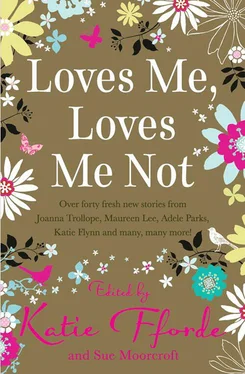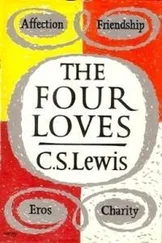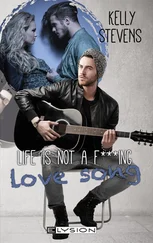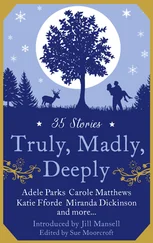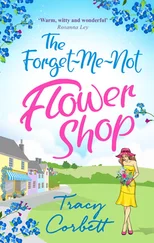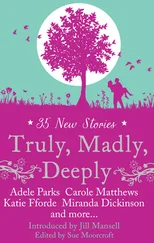‘Where the hell are you?’ Sam kept saying. He sounded furious. And then, ‘There are plenty more where you came from. Plenty. ’
I don’t really want to talk about that journey home. You can imagine how I felt—we’ve all been there. We haven’t all been as stupid as to go all the way to Amsterdam to get there but we’ve all done the dumped, humiliated, disappointed, how-do-I-go-on thing. I looked at myself in my compact mirror as I sat on the bus from Stansted to London and I thought that nobody would ever fancy me again, and that if I were them I wouldn’t fancy me, either.
I got to the theatre early, about four-thirty, three hours to curtain up and nobody much in yet but the technicians. I went into the big dressing room that all us girls in the chorus shared and to my relief there was no one in there except Monica, who’d been cleaning up and calming down in that dressing room for about a hundred years. We called her Mon and sometimes, when we were tired or upset because we’d fluffed a move or got kicked on stage, we called her Mum by mistake and she never minded.
She was sweeping the floor. Clots of cotton wool and chocolate wrappers and hairballs. She stopped sweeping when I came in.
‘Where’ve you been?’
I slumped in a chair and looked at myself in a mirror with all those light bulbs round it. I said, ‘Amsterdam.’
She leaned her broom against the wall. ‘What for?’
I fished around in my bag and pulled out a postcard. I put it down in front of me. ‘To look at him.’
She came over. She smelled, as she always did, of fags and carnation soap. ‘And?’
‘It’s Rembrandt. When he was twenty-two.’
Monica said, ‘I know about Rembrandt.’
I said, ‘I’ve screwed up. I haven’t got a love life and I’ve lost my job.’
Monica looked at the postcard. ‘Twenty-two. How old are you?’
‘Twenty-three.’
She sucked her teeth.
I put my head down on my arms, on Rembrandt. I said, ‘What am I going to do?’
‘When he painted that painting,’ Monica said, ‘he didn’t know his future. Did he? He didn’t know he was going to be the greatest. He just knew he could paint. That he’d got to paint.’
‘I can’t paint,’ I said, into my arms.
‘You can dance,’ Monica said. ‘You can dance better than most of them. You can sing.’
‘Sam won’t let me. Not any more.’
‘You know,’ Monica said, ‘about Samuel Beckett?’
I lifted my head. My eyes and nose were red. ‘I’ve heard of him.’
‘He said, “You try, you fail, you try again, you fail better.” You’ve got to try. You’ve got a future to make. You’ve got to try. ’
I sniffed.
‘Get up,’ she said. ‘Get up and get moving. Wash your face. Find Sam.’
Sam was on stage, with the techies. They were fixing something to do with the steps we had to come down, high kicking and singing. There were places where they didn’t feel too solid, those steps, and we used to shove each other about to avoid those places. I went and stood beside Sam. He had a clipboard. He didn’t look at me.
‘Push off,’ Sam said.
I didn’t say anything. I didn’t move.
‘You heard me,’ Sam said.
‘I’m sorry—’
‘Too late,’ Sam said. ‘I’ve replaced you.’
I said, ‘I’m back.’
‘Without your Dutchman.’
I said, ‘They look like potatoes.’
He wrote something on his clipboard. Then he said, ‘At least I don’t look like a potato.’
I looked at him. He didn’t. He looked fine.
Sam shouted something at the techies. Then he said, ‘Go and get me a coffee.’
I went on looking at him. I said, ‘How d’you know about the Dutchman?’
‘I make it my business to know.’
‘About all of us?’
There was a beat.
‘No,’ Sam said.
‘I brought one back,’ I said. ‘A Dutchman. On a postcard. Rembrandt, when he was twenty-two. I don’t think I’ve ever looked at a man so long. I thought he looked like a potato but he doesn’t. He looks great.’
Sam shouted something else. He glanced at me. ‘I think I can cope with a postcard.’
I waited.
‘Go and get me a coffee,’ Sam said again.
‘Please.’
‘Please. Get two coffees.’
‘Two?’
He looked at me, red eyes, red nose, dirty hair. He said, very clearly, ‘Two coffees. One for you. One for me. Scoot.’
I felt my arms moving at my sides, like wings rising. Maybe I was going to hug him. He took a step away.
‘Scoot,’ he said.
‘But Sam—’
‘Scoot!’ he shouted, so all the techies could hear, and then he dropped his voice. ‘Don’t be long,’ he said. He smiled at me. He actually smiled. He had beautiful teeth. ‘Don’t be long.’
The Elopement
Nicola Cornick studied history at London University and Ruskin College, Oxford, earning a distinction in her Masters degree with a dissertation on heroes and hero myths. She has a ‘dual life’ as a writer of historical romance for Harlequin Mills & Boon and a historian working for the National Trust. A double nominee for both the Romantic Novelists’ Association Romance Prize and the Romance Writers of America RITA award, Nicola has been described by Publishers Weekly as ‘a rising star of the Regency genre’. Her most recent book, Kidnapped, is available now from M&B Books. Her website is www.nicolacornick.com
It was a fact universally acknowledged in the village of Marston Priors that Amanda, Lady Marston, although young, was the unchallenged arbiter of good manners.
‘For,’ as Mrs Duke said to Mrs Davy, ‘if Lady Marston feels it is inappropriate to travel even the shortest distance in a carriage without one’s personal maid, I am sure that you will never see me defying convention by going out alone.’ Mrs Davy, who could not afford to employ a lady’s maid, agreed glumly.
Amanda Marston woke slowly and luxuriously that morning. She knew that the day was well advanced because Benson had drawn back the curtains and the spring sunshine was drawing out the rich and vivid colours from the beautiful new Axminster carpet. She knew she had an eye for design. It was one of her greatest accomplishments.
The scent of the hot chocolate lured her and she reached out a languid hand for the cup. Her fingers brushed the crisp parchment of a letter and she picked it up, still mulling over whether the bed drapes required refurbishment and whether pale green gauze might look dangerously like a harlot’s boudoir…Not that she knew anything of such things…
She read the first line of the letter with vague attention, the second with concentration and the third with outrage.
My dear Amanda
It is with great pleasure that I can inform you that I have eloped with Mr Sampson. I have always hankered after participating in an elopement so you may imagine my pleasure. I believe that the usual form of words on these occasions is: ‘Pray do not come after us.’ I am of age several times over and know my own mind, so there is no point in either you or Hugo trying to fetch me back. Indeed,
I hope you will both wish me happy.
Your loving grandmother-in-law, Eleanor Pevensey
Amanda shrieked, an action that startled her as much as it did the footman on the landing outside. Amanda never screamed, not even in a ladylike manner over a dead mouse or small spider. She had always considered having the vapours to be a vulgar way of attracting attention. Now, however, she shrieked again.
Lady Pevensey had eloped.
Lady Pevensey was entrusting herself and all her lovely fortune into the hands of a penniless curate.
Читать дальше
